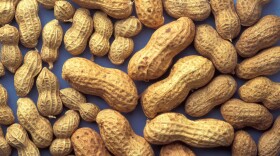-
With hunting season coming around, food banks are requesting people to donate deer meat.
-
Over the next few decades, bread may become an important protein source for many consumers, and animal protein alone won’t be able to meet the demand. Right now, researchers are engineering a new kind of flour for bread making, a flour that is made from insects.
-
Pretty much everyone knows that oxygen is a fundamental requirement for life as we know it, but oddly enough that’s not entirely right. There are many simple life forms, such as some kinds of bacteria and archea, that don’t have a major metabolic pathway that needs oxygen.
-
In 2020, an international team of researchers made an important discovery about a parasite called a dodder. Dodders are a group of over a 100 parasitic plant species, found through much of the world.
-
Science has done some amazing things, but nobody really knows if it could ever extend our life span, or eliminate aging entirely. Recently, a team of researchers from California found a way to reverse aging in several kinds of human cells.
-
We've been hearing a lot about the importance of gut bacteria to our health. Now it turns out that bacteria also have a say in how and when we eat.
-
Scientists at the University of Utah and at Arizona State studied the elephant genome and found that they have up to 40 extra copies of genes that code for a protein called p53, which has strong cancer-preventing properties.
-
Everyone knows the children's rhyme about Miss Muffet eating curds and whey, but what exactly are curds and whey? Let's find out, on today's Moment of Science.
-
According to legend, King Arther gained the crown by pulling a sword from a rock. Queen honeybees have an equally enchanting way of ascending to the throne. It's called the royal jelly.
-
Here’s the common advice about peanuts: if you’re allergic, stay away. Nut allergies are notorious for causing severe, even deadly, reactions. But new treatments for peanut allergies are on the rise.
© 2026. The Trustees of Indiana University
Copyright Complaints
1229 East Seventh Street, Bloomington, Indiana 47405
Copyright Complaints
1229 East Seventh Street, Bloomington, Indiana 47405
Play Live Radio
Next Up:
0:00
0:00
Available On Air Stations











